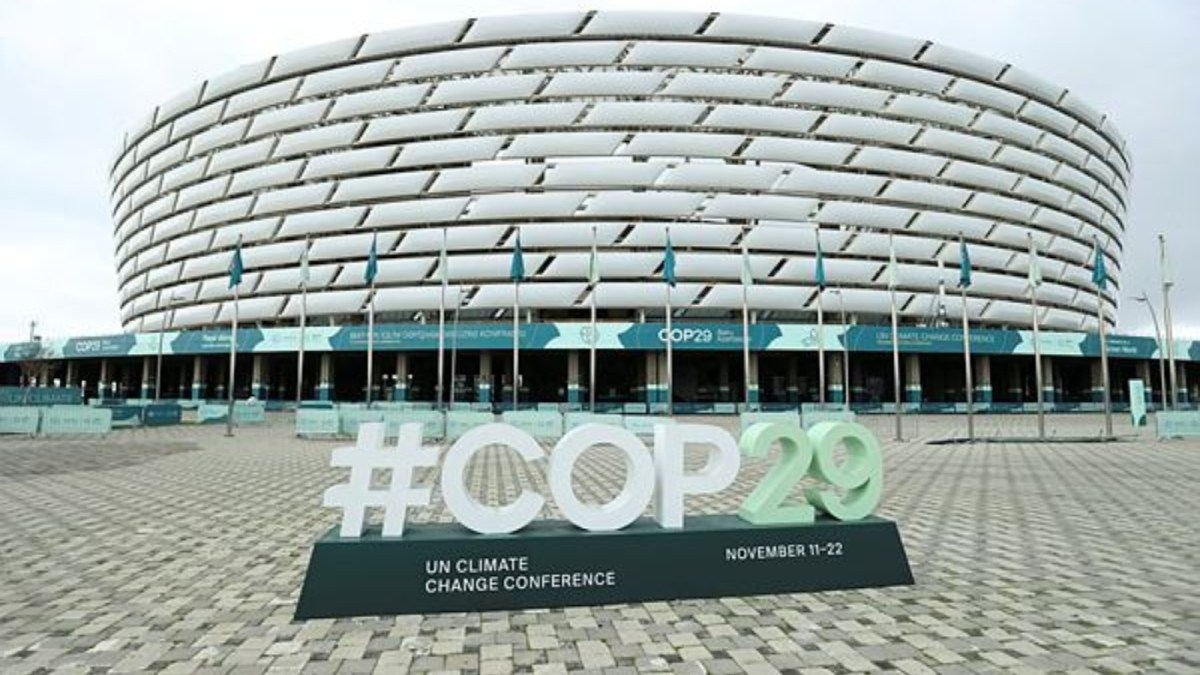Stay updated with the latest - Click here to follow us on Instagram
Interests of some getting prioritised, say developing nations, draw ‘super red line’
Speaking on behalf of the Like Minded Developing Countries (LMDCs), a group that also includes India and China, a Bolivian negotiator complained of “imbalance” in the discussions and the negotiating process.

As the stalemate over climate finance negotiations continues at COP29 in Azerbaijan’s Baku, a group of developing countries Wednesday expressed “concern” and complained that their needs were not being given attention while the interests of the developed countries were being sought to be protected.
Vulnerable nations are seeking $1.3 trillion for climate finance, including building out their own clean-energy systems.
Speaking on behalf of the Like Minded Developing Countries (LMDCs), a group that also includes India and China, Bolivian negotiator Diego Pacheco complained of “imbalance” in the discussions and the negotiating process.
“In this week, negotiations on adaptation have been totally deadlocked, no negotiations have been convened on Just Transition, and there are steadily receding hopes of getting an ambitious NCQG (New Cumulative Quantitative Goal on climate finance). It is only about mitigation, mitigation and more mitigation. This is the only thing that is being treated with a lot of care. It is clear that the interests of some are getting prioritised, and quite unfortunate that the foremost need of developing countries on adaptation is not even being considered,” the Bolivian negotiator said Wednesday.
With time running down as the conference is scheduled to end Friday and after two days of ministerial consultations, the Bolivian negotiator called reports that the European Union was preparing to propose about $200-$300 billion as the NCQG amount “unacceptable” to the developing country groups.
“200 billion? We are unable to fathom how this much is being considered to step up ambition of climate action in developing countries. We cannot accept this,” he said.
Developing countries have been demanding that the $100 billion figure be replaced with at least $1.3 trillion every year. Acknowledging the need for mobilising financial resources in trillions of dollars every year, the developed countries are also pushing to expand the contributor base, asking rich developing countries, including China, to also share the burden of mobilising resources.
The Bolivian negotiator said the developed country parties were trying to shift their own responsibility on to the developing countries, which was in violation of the Paris Agreement and not acceptable. “We are not here to renegotiate the Paris Agreement. The discussions on NCQG cannot be used to change the Paris Agreement. That is a super red line for us,” he said.
None of the developed countries have offered any figure for the quantum of finance that would be mobilised in the post-2025 period. The $200-$300 billion figure, reported in a section of media, has been widely circulated here.
The main task before COP29 is to finalise a finance agreement (NCQG) that will scale up financial flows to enable greater climate action.
Developed countries are under an obligation to provide money to the developing countries to help them fight climate change. As of now, their obligation is to mobilise at least $100 billion every year. The 2015 Paris Agreement has mandated that this amount must be scaled up in the post-2025 period.
Developing countries have been demanding that the $100 billion figure be replaced with at least $1.3 trillion every year. The developed countries, while acknowledging the need for mobilising financial resources in trillions of dollars every year, have been pushing for an expansion of the contributor base, asking rich developing countries, including China, to also share the burden of mobilising resources.
Meanwhile, new draft text agreements were expected to come out Wednesday night, including one on the NCQG negotiations.